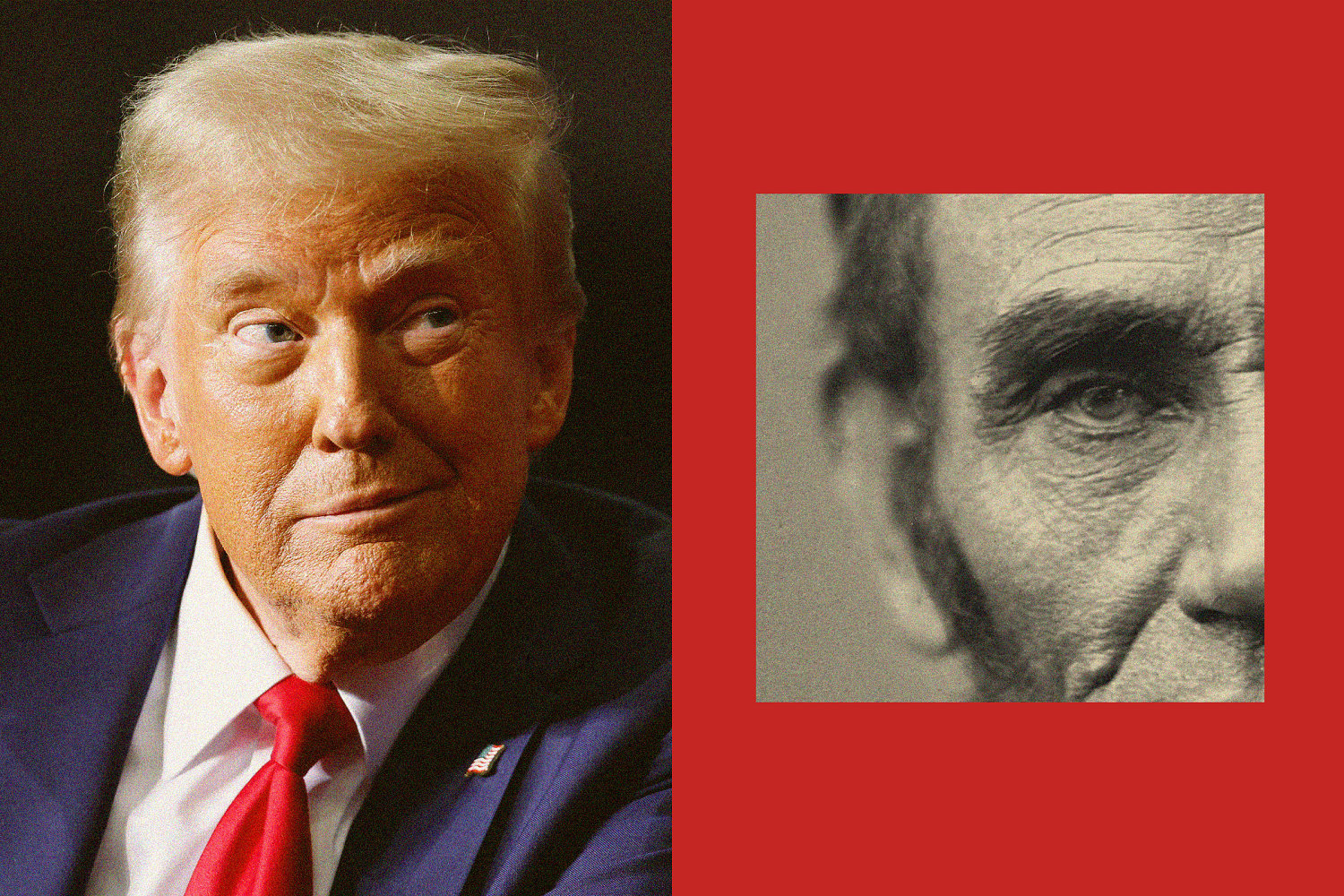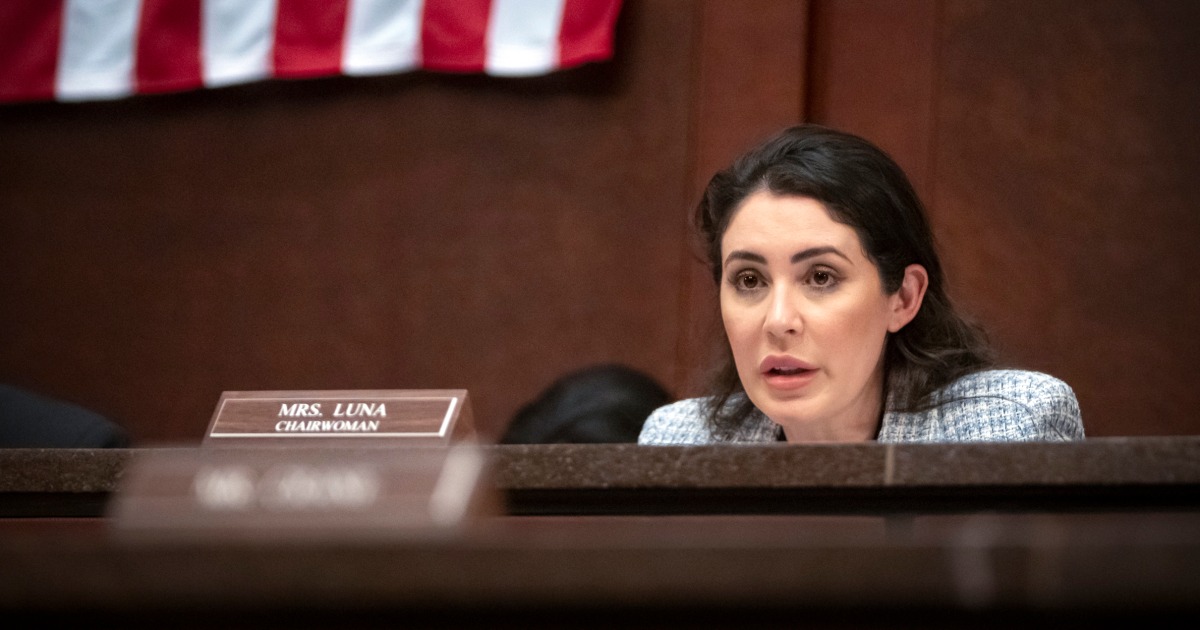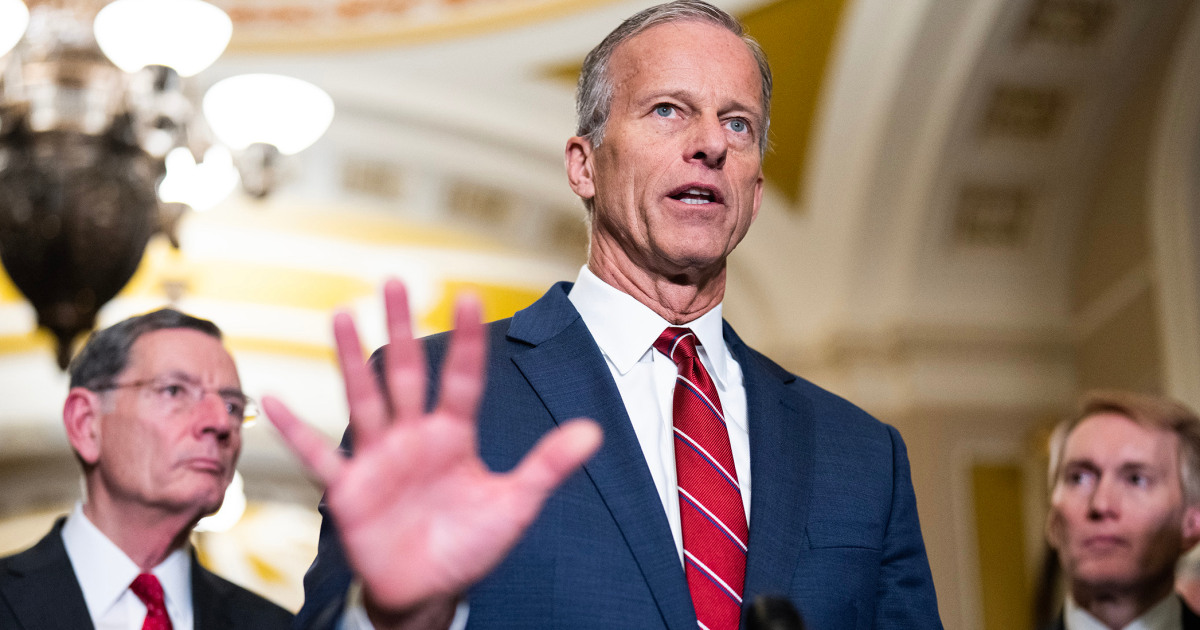
WASHINGTON — Back in his first term, Donald Trump was talking to a senior White House aide, Steve Bannon, about potential films to show in the building’s movie theater.
Bannon suggested Ken Burns’ classic documentary on the Civil War, thinking it would be instructive to see how an earlier president, Abraham Lincoln, struggled to find capable generals.
At that, Trump mentioned how once he had been flipping through the channels at his home in Bedminster, New Jersey, saw that the nine-part series was airing, and watched the whole thing, Bannon recounted in an interview.
Forget Joe Biden and Barack Obama; it’s the 16th president who seems to be a Trump fixation.
He muses about Abe Lincoln’s stovepipe hat, presidential bearing and even the mundane details of his daily existence. One of Trump’s curiosities is how the 6-foot-4-inch Lincoln fit into his 19th-century White House bed.
Then there’s Lincoln’s lofty place in history. Maybe too lofty for Trump’s taste.
Yes, Lincoln was “probably a great president,” Trump said on Fox News in the final weeks of the 2024 campaign. Quick came the side-eye: “Although, I’ve always said, why wasn’t that settled? I’m a guy that — it doesn’t make sense we had a civil war.”
One Trump adviser recalls a phone call with Trump in which they spent 15 minutes discussing whether Lincoln could have forged a peaceful end to the conflict between the North and South. What stood out, the adviser said, was the amount of time Trump spent on the topic: “That’s the longest conversation I ever had with him.”
Elected officials like to invoke Lincoln, finding fresh ways to pay homage. Biden’s inaugural address in 2021 borrowed two of Lincoln’s phrases: “My whole soul is in it,” and “The last full measure of devotion.”
As a freshman senator from Illinois, Lincoln’s home state, Obama wrote an essay inspired by a portrait of an aging Lincoln that hung in his office.
“What is it about this man that can move us so profoundly?” the future president wondered.
Trump, too, seems fascinated with Honest Abe. Why, exactly, isn’t easy to fathom. One was an up-from-nothing frontier lawyer who ended slavery and kept the nation from splitting in two while delivering some of the most lyrical presidential speeches in the canon.
The other is the scion of a wealthy New York real estate developer, and a TV-star-turned-politician whose self-branded contribution to presidential discourse is “the weave.”
What we do know is Trump has a particular interest in outliers. His transition sidekick is Elon Musk, the wealthiest person in the world. He likes winners, and in what he calls the “very exclusive club” of American presidents, no one is more venerated than Lincoln.
When scholars ranked the nation’s presidents according to “greatness” in a report released earlier this year, Lincoln finished first. Trump was last, leaving him some work to do to catch up.
Still, Trump may feel a certain kinship with Lincoln, having faced assassination attempts in his second presidential campaign and, like Lincoln, having pulled off an upset in his first.
Trump “gives everything to the office in his estimation, and that’s what Lincoln did,” said Brandon Rottinghaus, a University of Houston political science professor and co-director of the project that ranks the presidents. “So, the parallels are interesting, perhaps not perfect. Both men governed over a very divided nation and attempted to bring their life experience to solve the problem.”
Trump’s habit is to treat Lincoln not only as a giant of history, but something of a political contemporary. And a flawed one at that. Was Lincoln beatable? Trump says his pollsters told him could have defeated a ticket of George Washington and Lincoln had the two men whose faces are carved on Mount Rushmore come back from the dead and run against him in 2020.
One of the pollsters Trump name-checked, John McLaughlin, said in an interview that Trump may have been the one who first said he could have beaten the Washington-Lincoln ticket.
“He might have brought it up and I might have agreed with him,” McLaughlin said with a laugh. “He [Trump] is certainly the best I ever met. He might have brought it up, and I might have said, ‘Sure.’”
Could Trump have come up with the deal that eluded Lincoln, averting the Civil War altogether?
None of this is knowable, but Trump relishes these sorts of counterfactuals. He likes to say that neither Hamas’ attack on Israel nor Russia’s invasion of Ukraine would have happened had he been president.
So, it’s not a leap to reckon that the author of “The Art of the Deal” might believe he has the singular skills to achieve what the antebellum politicians could not.
“President Trump has complete confidence that in any situation, he can enforce his will and bring about a positive outcome,” Bannon said. “He absolutely believes that he could have taken the situation between the North and South and negotiated a deal that would have ended chattel slavery and avoided the Civil War.”
“Historians will look at this era as the Age of Trump,” Bannon added. “All of us will be forgotten: Elon Musk, Tucker Carlson, Steve Bannon. What people will remember is Trump and the MAGA movement.”
By the time Lincoln took office, the nation was already unraveling. Seven southern states seceded from the union between his election and swearing-in. Confederate forces fired on the U.S. garrison at Fort Sumter in South Carolina the month after his inauguration.
Trump hasn’t laid out how a peaceful settlement could have been reached, but at least one historian says the price of a settlement would have been leaving slavery intact.
“A lot of people wanted Lincoln to settle in 1861 and they were all Confederates or ambivalent Americans who had business connections with the South,” said Ted Widmer, an historian and author of the book “Lincoln on the Verge.”
“There was no way to settle unless you were prepared to live with permanent slavery in the United States or cave in to extremists who didn’t even care about the country.”








